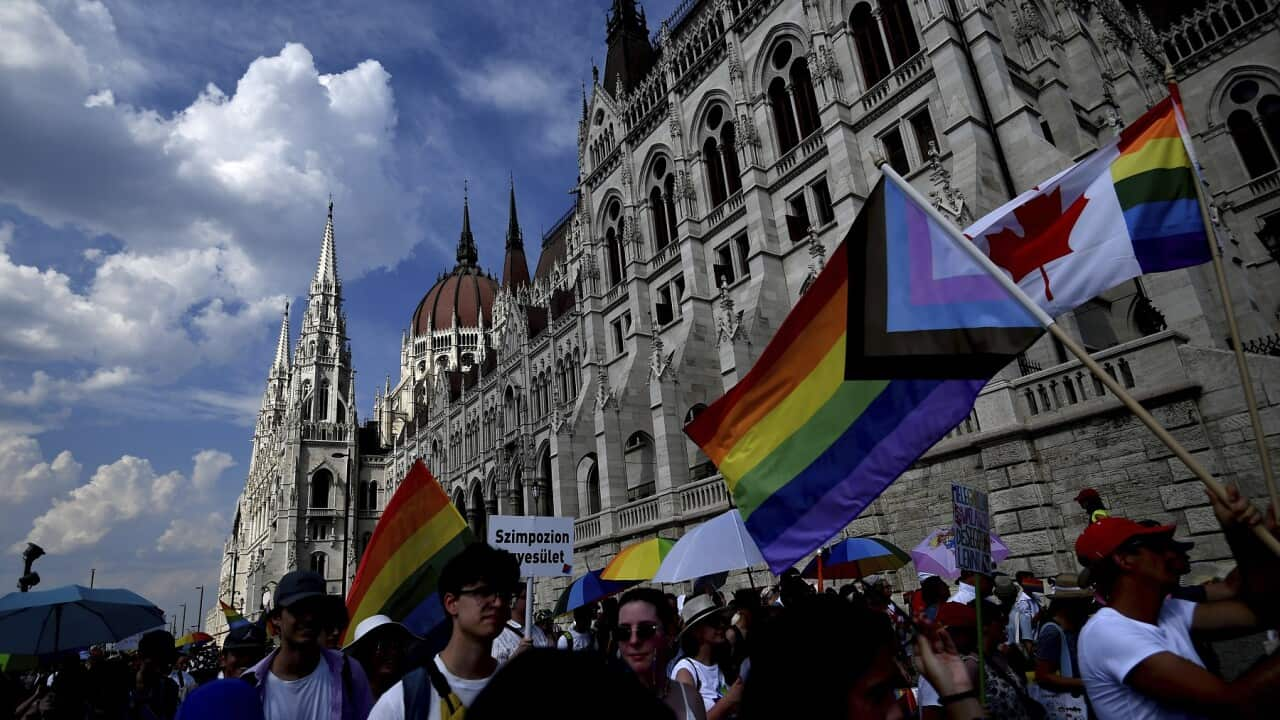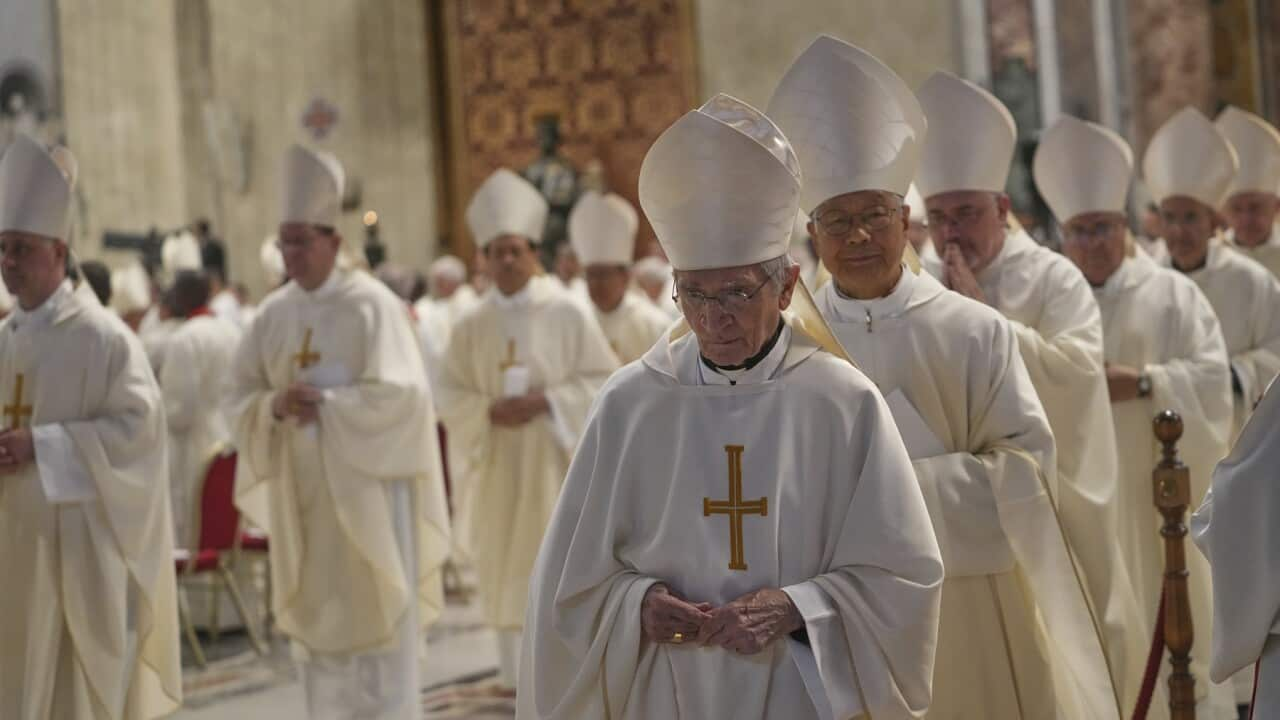TRANSCRIPT
A chaotic day in Hungary's parliament as the government moved to ban public events by LGBTIQ+ communities.
Opposition politicians repeatedly blasted air horns in an attempt to disrupt the vote.
But, after the disruption, the vote continued unimpeded and the amendment was passed along party lines with 140 votes for and 21 against.
It was proposed by the ruling Fidesz party, led by populist Prime Minister Viktor Orbán - the European Union's longest-serving leader who critics have labelled an autocrat.
He says he was concerned that pride events posed a risk to children.
"I can say it honestly as a father, as a Hungarian citizen, as a person who is concerned about the future of this country, as a man who feels responsible for the spiritual state of the next generation, I have always been worried about such a thing as Pride.”
The moves comes after weeks of protests with thousands of Hungarians hitting the streets, some in support of the LGBTIQ+ communities and others outraged at what they see as a slow stripping away of civil liberties.
"I think that we've got nowhere to retreat. Until now we've been able to try to make deals and look for compromises, but that time has passed. If we don't stand up for the rights of minorities and for our own fundamental rights, then who will when they come for us? We've reached the point where we have to stand up and say, ‘No more’.”
The amendment means the popular Budapest Pride event that draws thousands annually has now been banned.
The law also allows authorities to use facial recognition tools to identify individuals that attend prohibited events and can come with fines for violators of up to $870..
Dániel Döbrentey, legal expert of the Hungarian Civil Liberties Union says people are seeing the amendment as something much broader than a crackdown on the LGBTIQ+ community.
“This will definitely backfire. What we experience is that thousands of people who say that they've never ever participated in Pride, they got outraged because of the regulation, not because they are big fans of the Pride, but because they realize that this is not about the Pride but this is about the limitation of the freedom of assembly and people realise that this is the first step towards a broader limitation of other fundamental rights.”
The lawyer points out the exact constitutional amendment says if the crowd or assembly could endanger children then it could be banned, leaving its application open-ended.
Dávid Bedő, a Hungarian politician from the centrist Momentum party, says Viktor Orbán's rule has been characterised by a slow stripping away of civil rights.
“In the past 15 years, step by step, they have been dismantling democracy and the rule of law. And in the past two, three months, we see that this process has been sped up. And since the election is coming up next year, it's going to be within a year, they will do everything in their power to stay in power. That is what this constitutional amendment is about.”
The most serious challenge to Mr Orbán's leadership comes from Péter Magyar, the leader of the Respect and Freedom party.
Mr Magyar was previously a member of Mr Orbán's party but publicly resigned from all government-related positions in February 2024 due to disagreements with how Fidesz was governing the country.
He then returned to politics in the 2024 European Parliamentary election.
His party gained 30 per cent of Hungary's vote, becoming the country's second largest.
"This system cannot be reformed, cannot be fixed, cannot be improved. This system can only be replaced, and that is what we will do lawfully, democratically, but with determination. We will cut down the regime.”
But with about a year until the expected April 2026 parliamentary elections, critics fear Viktor Orbán will seek to further erode the right to peaceful assembly and clamp down on political dissent ahead of the vote.













